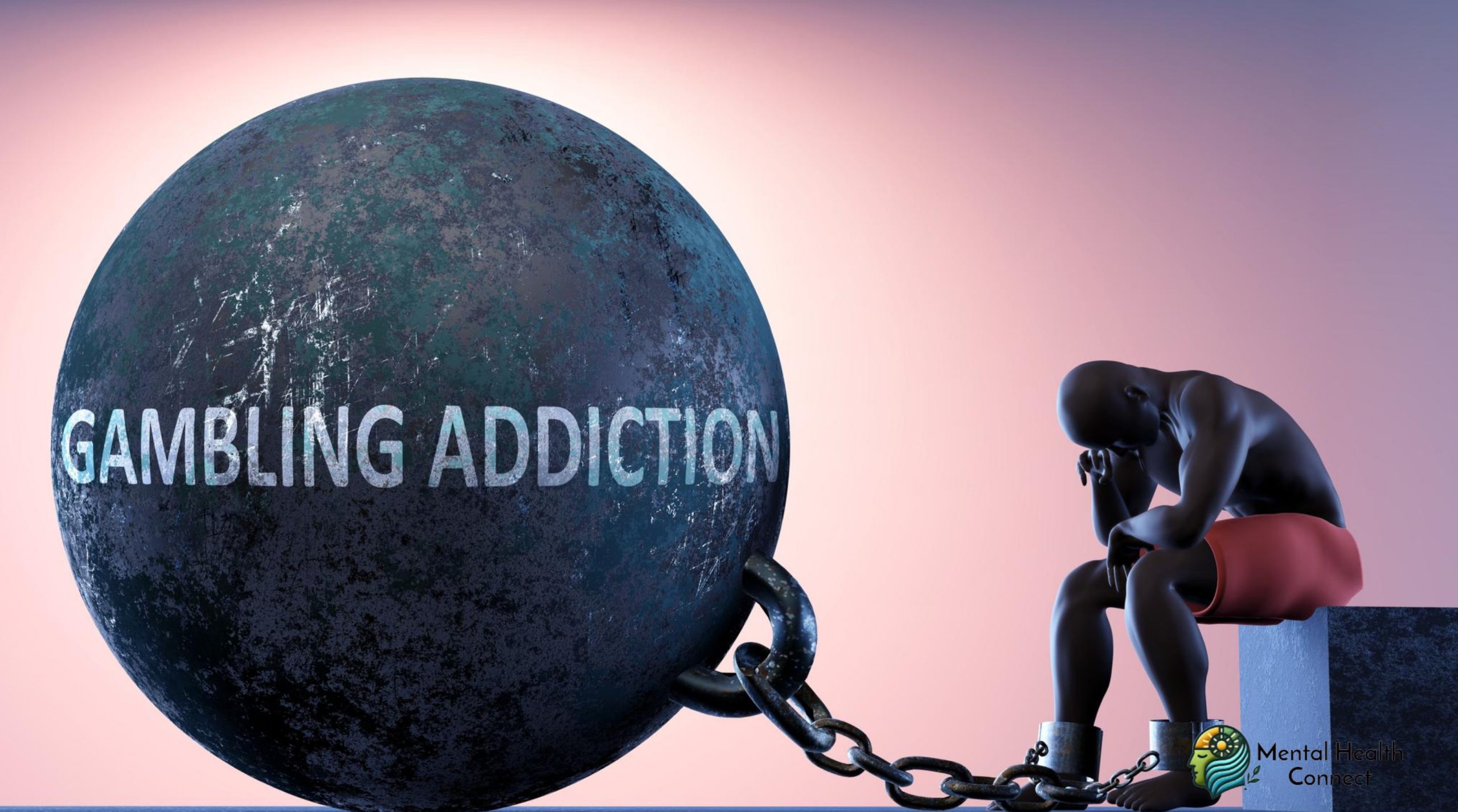Breaking Free from Gambling Addiction: Steps to Recovery

Gambling addiction, clinically known as gambling disorder, is a serious condition that can devastate lives financially, emotionally, and socially. What often begins as casual entertainment can escalate into a compulsive behavior that feels impossible to control. However, with the correct strategy and assistance, recovery is achievable. This blog outlines practical steps toward breaking free from gambling addiction and rebuilding a healthier life.
Understanding Gambling Addiction
Gambling disorder is recognized as a legitimate addiction in the Diagnostic and Statistical Manual of Mental Disorders (DSM-5). Like substance addictions, gambling triggers the brain’s reward system, releasing dopamine and creating feelings of pleasure and excitement. Over time, individuals may need to gamble with increasing amounts of money or take greater risks to achieve the same emotional “high.”
Signs that recreational gambling has evolved into an addiction include:
- Preoccupation with gambling and constantly planning the next opportunity
- Needing to gamble with increasing amounts of money
- Unsuccessful attempts to cut back or stop gambling
- Restlessness or irritability when trying to reduce gambling
- Using gambling as an escape from problems or relieving feelings of distress
- “Chasing losses” by returning to win back money after losing
- Lying to conceal gambling activities
- Jeopardizing or losing significant relationships, jobs, or opportunities
- Dependency on others to provide financial support because of gaming losses
Acknowledging the Problem
The first and often most challenging step toward recovery is acknowledging that gambling has become problematic. Denial is a powerful force in addiction, and many people with gambling disorders minimize the consequences or rationalize their behavior.
The following are indicators that it may be time to get help:
- Family members or friends have expressed concern
- Feeling guilty or ashamed about gambling
- Financial problems directly related to gambling
- Gambling to escape other problems
- Continuing to gamble despite negative consequences
Recognizing that gambling has become harmful doesn’t signify weakness but shows courage and self-awareness. This acknowledgment becomes the foundation for moving forward.
Seeking Professional Help
Professional treatment significantly improves recovery outcomes for gambling addiction. Several types of support are available:
Therapy Options:
- Cognitive Behavioral Therapy (CBT): Helps identify and change unhealthy gambling behaviors and thoughts, address underlying problems, and develop healthier coping mechanisms.
- Motivational Interviewing: Strengthens motivation and commitment to change.
- Family Therapy: Addresses relationship issues and establishes a supportive home environment.
Treatment Settings:
- Outpatient programs: Living at home while attending therapy sessions on a scheduled basis is made possible by outpatient programs.
- Intensive outpatient programs: Provide more structured support without full hospitalization
- Residential treatment: Offers immersive care in a controlled environment away from gambling triggers
Medical Assessment: A psychiatric evaluation can identify co-occurring conditions like depression, anxiety, or substance use disorders that may contribute to gambling behavior. In some cases, medication may help manage these conditions or reduce gambling urges.
Joining Support Groups
Support groups provide invaluable community understanding and accountability. Gamblers Anonymous (GA), based on the 12-step model, offers free meetings worldwide where people share experiences and support one another’s recovery. Many find that connecting with others who truly understand the struggle creates hope and reduces isolation.
For family members, Gam-Anon provides support for those affected by someone else’s gambling. These groups help loved ones understand addiction, set healthy boundaries, and take care of their own well-being.
Financial Recovery Steps
Gambling addiction often causes severe financial damage. Addressing these issues is crucial for overall recovery:
- Assessment: Create a complete inventory of debts, assets, income, and expenses.
- Budgeting: Develop a realistic budget that prioritizes essential expenses and debt repayment.
- Financial Controls: Consider arrangements that limit access to money:
- Transferring financial control to a trusted family member temporarily
- Closing credit cards and online gambling accounts
- Setting up automatic bill payments
- Using cash only for daily expenses
- Debt Management: Explore options like:
- Debt consolidation
- Negotiating with creditors
- Credit counseling services
- In severe cases, bankruptcy protection (with professional legal advice)
- Rebuilding: Gradually work toward financial stability through consistent responsible behavior and possibly working with a financial advisor experienced in addiction recovery.
Developing Healthy Coping Mechanisms
Gambling often serves as a way to cope with difficult emotions or situations. Developing alternative coping strategies is essential for long-term recovery:
- Physical exercise releases natural endorphins and reduces stress
- Mindfulness and meditation practices build awareness of triggers and cravings
- Creative outlets like art, music, or writing provide emotional expression
- Developing new hobbies that create a sense of accomplishment and joy
- Building meaningful connections through volunteering or community involvement
- Learning stress management techniques like deep breathing and progressive muscle relaxation
Repairing Relationships
Gambling addiction typically strains relationships through broken trust, financial problems, and emotional distance. Rebuilding these connections takes time and consistent effort:
- Make amends for specific harms when appropriate, but understand that trust must be earned back gradually
- Demonstrate reliability through consistent behavior over time
- Practice honest communication about recovery progress and challenges
- Attend family therapy to address deeper relationship issues
- Be patient with others’ hesitation or protective boundaries
- Consider relationship counseling for intimate partnerships damaged by gambling
Creating a Relapse Prevention Plan
Recovery is an ongoing process, and having a structured plan to prevent relapse is crucial:
- Identify Triggers: Recognize specific situations, emotions, or environments that increase gambling urges (stress, boredom, being near casinos, receiving paychecks, etc.).
- Develop Avoidance Strategies: Create specific plans to avoid high-risk situations when possible.
- Coping Tactics: Prepare responses for when triggers can’t be avoided or when cravings emerge unexpectedly.
- Support Network: Create a list of people to contact when struggling, including sponsors, therapists, family members, or friends.
- Warning Signs: Learn to recognize early warning signs of potential relapse, such as romanticizing past gambling experiences or feeling overconfident about recovery.
- Emergency Plan: Develop a specific action plan for high-risk situations, including steps to take if a slip occurs.
Building a Fulfilling Life Beyond Gambling
Sustainable recovery means creating a life that offers meaning and satisfaction without gambling. This might include:
- Reconnecting with former interests and passions
- Developing new skills or pursuing education
- Building a community of supportive, non-gambling friends
- Finding purpose through work, volunteering, or creative pursuits
- Practicing gratitude for progress and positive aspects of life
- Setting and working toward meaningful goals
Recovery from gambling addiction is challenging but entirely possible. The path isn’t always linear setbacks may occur, but they don’t erase progress made. With professional help, peer support, and personal commitment, individuals can break free from gambling’s grip and rebuild fulfilling, balanced lives.
If you or someone you love is struggling with gambling addiction, remember that seeking help is a sign of strength, not weakness. Every step toward recovery, no matter how small, is valuable progress toward reclaiming control and building a healthier future.
-
 How to Support Someone with OCDApril 17, 2025
How to Support Someone with OCDApril 17, 2025 -


Leave a Reply